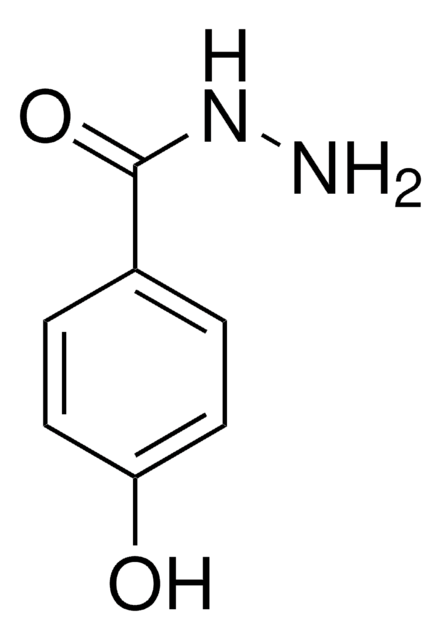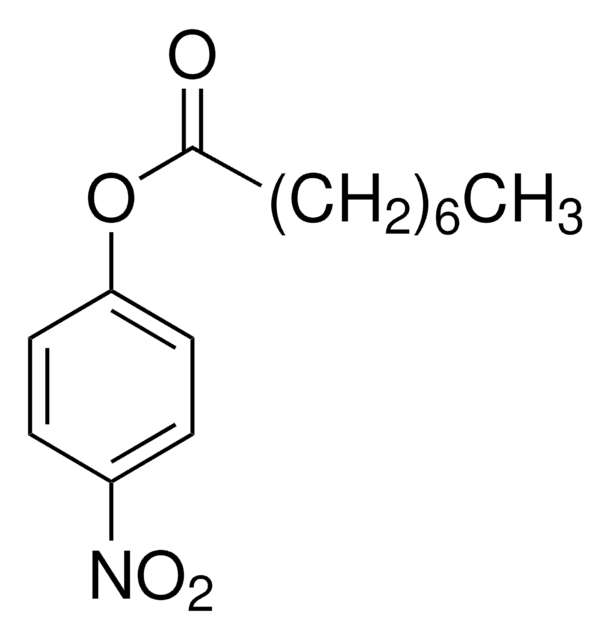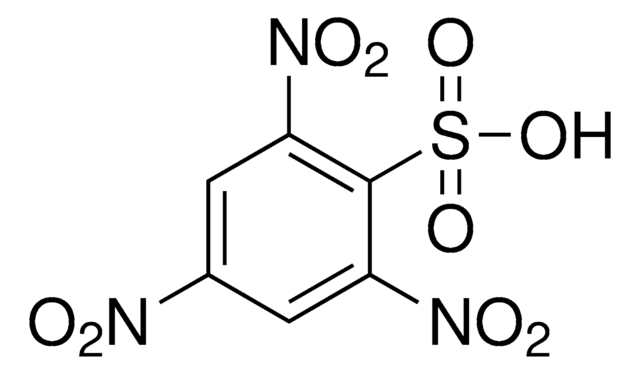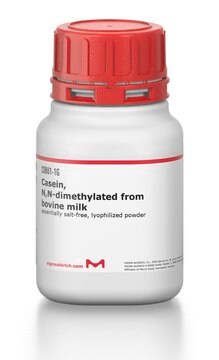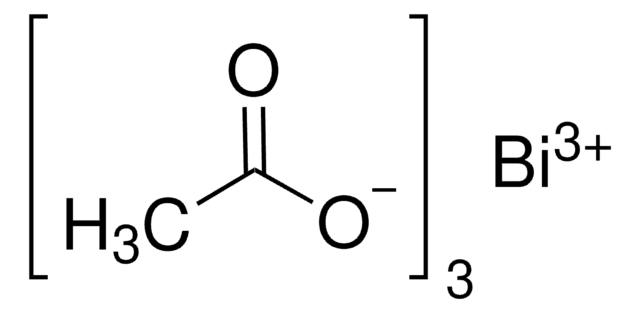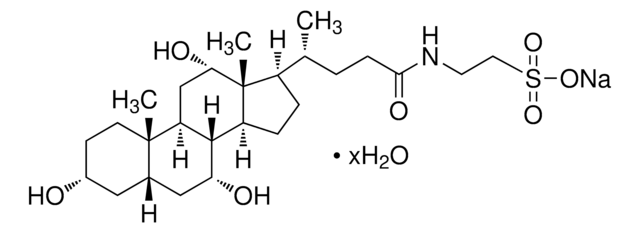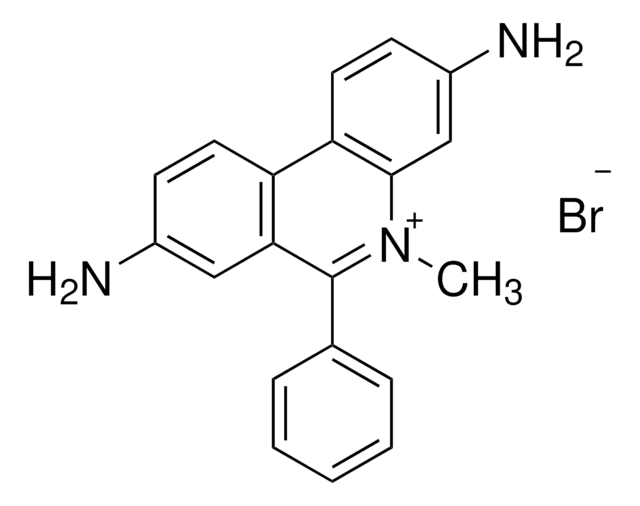N4377
4-Nitrophenyl valerate
chromogenic, ≥98% (TLC), liquid
Sinônimo(s):
Pentanoic acid 4-nitrophenyl ester
Faça loginpara ver os preços organizacionais e de contrato
About This Item
Fórmula empírica (Notação de Hill):
C11H13NO4
Número CAS:
Peso molecular:
223.23
Número MDL:
Código UNSPSC:
12352204
ID de substância PubChem:
NACRES:
NA.83
Produtos recomendados
Nome do produto
4-Nitrophenyl valerate, liquid
Ensaio
≥98% (TLC)
Nível de qualidade
Formulário
liquid
cor
faintly yellow to dark yellow
temperatura de armazenamento
−20°C
cadeia de caracteres SMILES
CCCCC(=O)Oc1ccc(cc1)N(=O)=O
InChI
1S/C11H13NO4/c1-2-3-4-11(13)16-10-7-5-9(6-8-10)12(14)15/h5-8H,2-4H2,1H3
chave InChI
RJQXEHRFVKJLJO-UHFFFAOYSA-N
Aplicação
4-Nitrophenyl valerate has been used as a substrate solution to measure the rate of p-nitrophenol formation using p-nitrophenyl valerate as substrate. It has also been used as a substrate to measure general esterase activity in hepatopancreas extracts.
Ações bioquímicas/fisiológicas
4-Nitrophenyl valerate acts as a model substrate for carboxylesterase and butyrylcholinesterase.
Código de classe de armazenamento
11 - Combustible Solids
Classe de risco de água (WGK)
WGK 3
Ponto de fulgor (°F)
Not applicable
Ponto de fulgor (°C)
Not applicable
Equipamento de proteção individual
Eyeshields, Gloves, type N95 (US)
Escolha uma das versões mais recentes:
Já possui este produto?
Encontre a documentação dos produtos que você adquiriu recentemente na biblioteca de documentos.
Os clientes também visualizaram
Xia Wen et al.
Toxicology, 416, 15-22 (2019-01-28)
Hepatic carboxylesterases (Ces) catalyze the metabolism of drugs, environmental toxicants, and endogenous lipids and are known to be regulated by multiple nuclear receptors. Perfluorooctanoic acid (PFOA) is a synthetic fluorochemical that has been associated with dyslipidemia in exposed populations. In
Sonja Kübelbeck et al.
Macromolecular bioscience, 18(7), e1800095-e1800095 (2018-06-06)
Herein, the synthesis of enzyme-polymer conjugates is reported. Four different activated polymers (mPEG-aldehyde, mPEG-NHS, maltodextrin-aldehyde, carboxymethyl cellulose aldehyde) are conjugated to the surface of protease, α-amylase, and lipase using two different strategies (reductive amination and alkylation with NHS-activated acid). Although
Mikael Skaanning Jørgensen et al.
Microbial cell factories, 13(1), 33-33 (2014-03-08)
The industrially applied filamentous fungus Trichoderma reesei has received substantial interest due to its highly efficient synthesis apparatus of cellulytic enzymes. However, the production of heterologous enzymes in T. reesei still remains low mainly due to lack of tools for
Sandeep Kondakala et al.
Toxicology and applied pharmacology, 337, 67-75 (2017-11-04)
The prevalence of obesity is increasing at an alarming rate in the United States with 36.5% of adults being classified as obese. Compared to normal individuals, obese individuals have noted pathophysiological alterations which may alter the toxicokinetics of xenobiotics and
George E Howell et al.
Food and chemical toxicology : an international journal published for the British Industrial Biological Research Association, 118, 821-829 (2018-06-24)
The effects of obesity on organophosphate pesticide-mediated toxicities, including both cholinergic and non-cholinergic targets, have not been fully elucidated. Therefore, the present study was designed to determine if high fat diet intake alters the effects of repeated exposure to chlorpyrifos
Nossa equipe de cientistas tem experiência em todas as áreas de pesquisa, incluindo Life Sciences, ciência de materiais, síntese química, cromatografia, química analítica e muitas outras.
Entre em contato com a assistência técnica